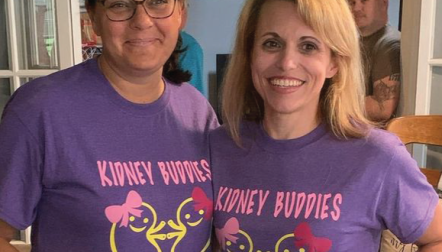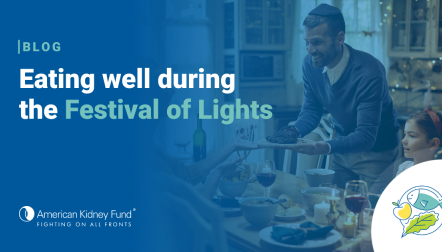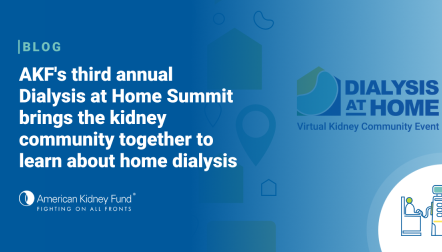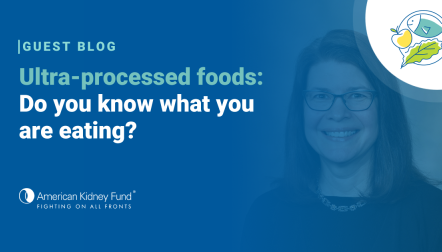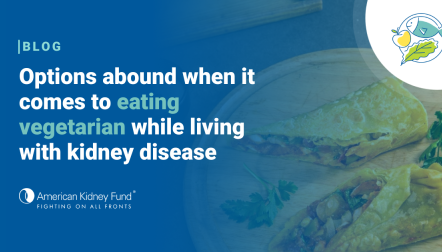
Blog post
Navigating nutrients: Helpful vs. harmful potassium
Many of my favorite foods just so happen to be among the highest potassium foods you can eat: ripe bananas; sweet potatoes that are perfectly slow-baked until their inside melts like butter and tastes like honey; butternut squash soups of any variety; and just-ripened avocados, whether they're sliced up in a sandwich, chopped into a salad or crushed into guacamole.
As a matter of fact, I'm not alone in my love of high-potassium foods. During the week I wrote this, three of my newer patients told me that they hoped I'd loosen the potassium restrictions given to them by other doctors. One of the patients wasted her entire tomato harvest when her previous doctor advised her not to eat them. Another was desperate to eat guacamole once again, and the other told me about how much she missed drinking pomegranate juice — one of her favorite new indulgences. Similar situations occur at my office every day. Many people with kidney disease think they need to limit potassium in their meals, even though some don't need to.
Helpful potassium
For many people, eating foods that are high in potassium can provide them with real health benefits. That's especially true for people with high blood pressure or those who are at high risk for strokes. One scientific review found that eating high amounts of potassium can lower blood pressure significantly. Doctors and scientists still aren't exactly certain why a high-potassium eating plan improves blood pressure, but it's likely that it has something to do with my favorite organs: the kidneys. Your kidneys process most of the potassium you get through the foods and drinks you consume. If your kidneys are working correctly, they may use extra potassium from what you consume to get rid of extra sodium in your body, which can help your body retain less water and lower your blood pressure.
The benefits of a high-potassium eating plan extend even further. High-potassium foods can help to reduce your risk of kidney stones (as long as you choose low-oxalate foods) and provide you with added fiber and micronutrients. Additionally, people who don't get enough potassium have a higher risk of cardiovascular disease and stroke.
Harmful potassium
Problems with potassium can occur when you have kidney disease, as your kidneys have difficulty filtering your blood and can't process the extra potassium in your body that you get from the foods and drinks you consume. Once you reach stages 4 and 5 of kidney disease , or are on certain medicines that can increase your risk for high potassium, things change. At that point, your kidneys may have trouble filtering out potassium from your body, causing potassium build-up in your blood. If your potassium levels become dangerously high, it can lead to serious health problems, including heart attack or death.
The bottom line
A high-potassium meal plan can be beneficial for you — until you get to the later stages of kidney disease, at which point you may need to switch to a meal plan that is lower in potassium. For some people, the need for a low-potassium meal plan may happen when their kidneys are functioning at 25%, while others — for reasons we don't completely understand — may never reach a point when they need to limit the amount of potassium they consume.
If this sounds confusing, you're not alone! Potassium guidelines often get lumped into a one-size-fits-all recommendation. To avoid serious problems from consuming too much potassium, it is very important that you talk to your doctor and dietitian about how much potassium you should be consuming each day. They will help you come up with a food and fluid plan that works for your unique needs and is appropriate for your individual lab results.
The following questions can be helpful to have on hand with you next time you see your doctor or dietitian:
- What is my stage of kidney disease?
- What is my blood potassium level? Is it high?
- Am I on medications that may make my potassium high?
- Which foods are high in potassium?
- Which foods are low in potassium?
- How can I make changes to my meal plan so I can still enjoy the textures and flavors of my favorite foods without putting my health at risk?
- How will I know when I may have to make changes to the amount of potassium I consume?
- Does my insurance cover a visit with a dietitian?
The bottom line is that there are no easy or simple answers to some of these questions, but being armed with the right questions to ask can help you can take control of your kidney health.

